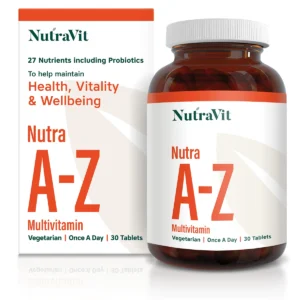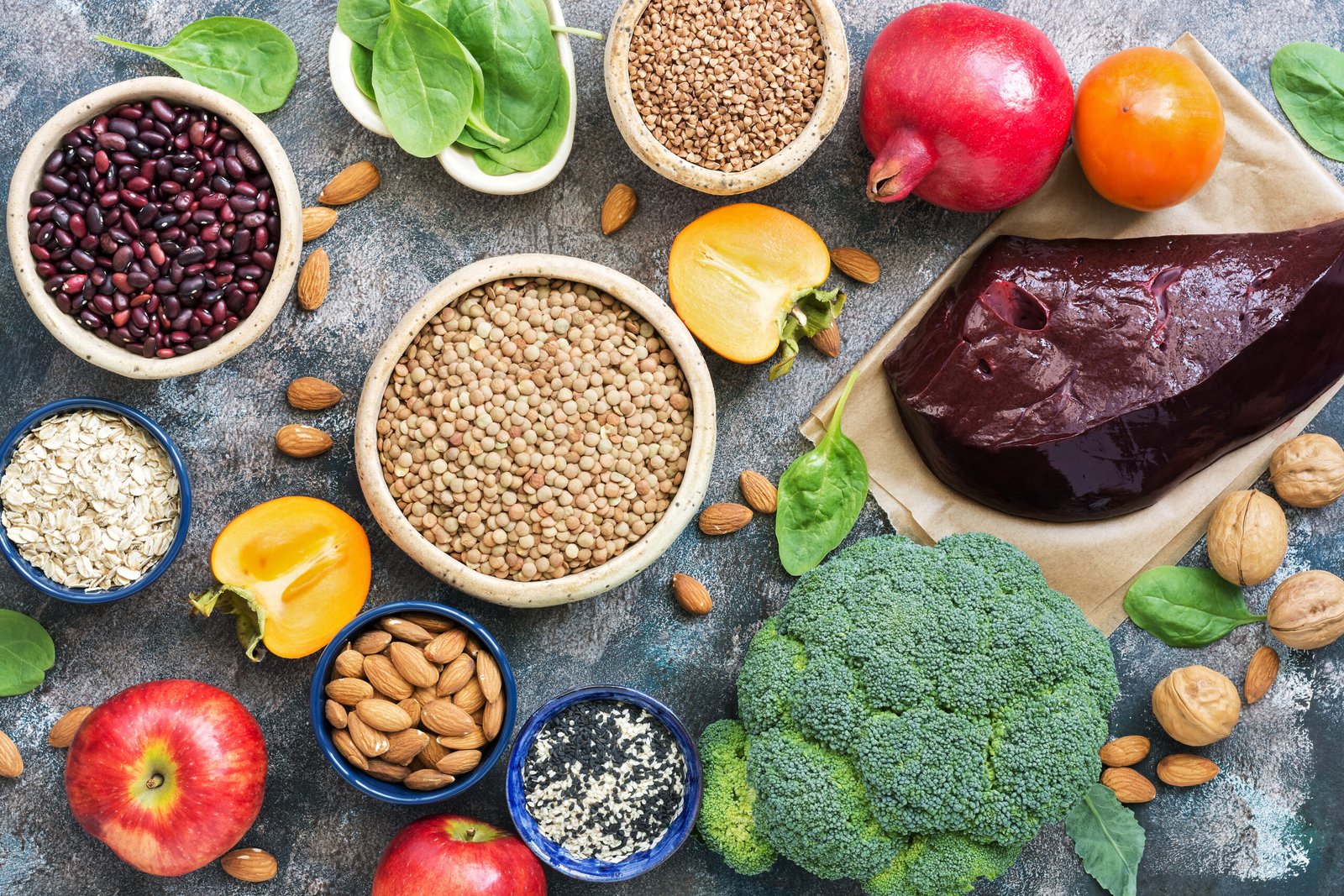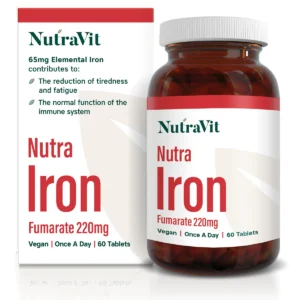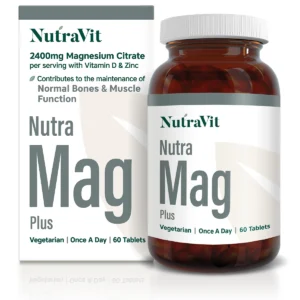Have you ever heard of the saying an apple a day keeps the doctor away? Well, it’s not exactly true, but it has a deeper message. Fruits like apples and even vegetables contain many vitamins and minerals.
While many of us focus on vitamins the body needs, we often seem to overlook the essential minerals. Minerals act as building blocks for our bones, help regulate metabolism, support immune function, maintain fluid balance, and improve cognitive function.
But, with many essential ones, how do you define the most important mineral for the body?
Dive in with us as we break down the minerals needed for the body and rank their importance below.
What are the essential minerals?
Essential minerals are types of nutrients essential for supporting your body’s health. Out of the many different types of minerals needed for the body, there’s not one that’s more important than the rest. If we had to concise them down, there are five you should pay attention to, which are:
Calcium
This is the most abundant mineral in your body and is required for the development of your bones and teeth. It also helps with muscle contraction, your cardiovascular system, blood pressure, and cholesterol.
Food sources: Tofu, cheese, yogurt, milk, legumes, fortified breakfast cereals, dark leafy green vegetables, cheese, salmon and sardines.
Recommended calcium levels:19-64-year-olds need 700 mg per day. (NHS).
Phosphorous
Phosphorus is a mineral that also forms teeth and bones. It helps make DNA and RNA, supports muscle recovery after exercise, assists with nerve conduction, and filters and removes waste from the kidneys.
Food sources: Pork, seafood, seeds, nuts, low-fat dairy products, turkey, pork and seeds
Recommended phosphorus levels: 19-64 year olds need 500 mg daily (NHS).
Potassium
Potassium is a mineral your body requires to function correctly; it’s a form of electrolyte. Around 98% of potassium is located in your body’s cells, 80% in muscle cells, and the remaining 20% is located in your bones, liver and red blood cells. Potassium helps maintain fluid balance within the body, helps your body generate nerve impulses, helps with contractions, especially your heart and transmits nerve signals to the brain.
Food sources: Bananas, avocados, lentils, cashews, almonds, flaxseeds, lentils, oranges and potatoes.
Recommended Potassium levels: 3.5-5.3mmol in your blood (NHS).
Sodium
We’re all familiar with sodium, i.e. salt. It’s found in practically everything we consume. Sometimes, it’s naturally occurring in foods; other times, it’s added as a manufacturing ingredient in restaurants and homes. Sodium helps distribute water in our bodies, transport nutrients and compounds into cells, control blood pressure, and help with muscle contractions.
Food sources: Cheese, canned fish, processed meats, soy sauce and nuts.
Recommended Sodium levels: No more than 6g daily ( NHS).
Magnesium
Magnesium is also an important mineral your body needs to help keep your bones strong, maintain normal blood pressure, and keep your heart rhythm steady.
Food sources: Cheese, low-fat milk, leafy greens, almonds, pumpkin seeds, oatmeal, yogurt, rice, and more.
Recommended Magnesium levels: 300mg a day for men and 270 mg a day for women (NHS).
Trace minerals
In addition to essential minerals, trace minerals are other minerals needed for the body. They’re only needed in a micro amount and can be found in food and supplements. Here are two important trace minerals:
Iron
Iron plays a key role in making haemoglobin, a protein in red blood cells that helps transport oxygen from your lungs to different body parts.
Food sources: Eggs, beans, tofu, quinoa, beef, pork, lamb, chicken, turkey and lentils
Recommended iron intake (NHS):
- 8.7mg a day for men aged 19 and over.
- 14.8mg a day for women aged 19 to 49.
- 8.7mg a day for women aged 50 and over.
Try: NutraIron a supplement that can help reduce tiredness, fatigue and support your immune system.
Zinc
This trace mineral is important for cell growth and division; it helps with DNA synthesis and protein production.
Food sources: Seeds, dairy, eggs, lentils, oysters, beef, chicken leg, low-fat yoghurt and spinach.
Recommended zinc levels (NHS) : 9.5mg a day for men and 7mg a day for women (19 to 64 years).
Try: NutraZinc a vegetarian friendly tablet that helps promote healthy hair, skin and nails.
Supplements to try
If you feel like you’re not getting enough of these minerals needed for the body from food sources, then you can opt for supplements. Here are some supplements we recommend:
NutraMag
Try NutraMag, a high-strength magnesium citrate tablet that also contains Vitamin B3, B6, B12, D3, Zinc and Boron. With 400mg of magnesium, it’s fast absorbing and supports your sleep, physiological function and the nervous system. It also promotes electrolyte balance and normal protein synthesis, ensuring your body gets the essential nutrients it needs.
Nutra-AZ
 If you’re looking to take care of all areas of your health, then why don’t you try taking Nutra A-Z? This comprehensive multivitamin contains a synergistic formulation of Vitamins B12, C, D, Zinc, Iron, Calcium, Magnesium, and more. It helps prioritise your muscle health, reduce fatigue and tiredness, and support your immune system.
If you’re looking to take care of all areas of your health, then why don’t you try taking Nutra A-Z? This comprehensive multivitamin contains a synergistic formulation of Vitamins B12, C, D, Zinc, Iron, Calcium, Magnesium, and more. It helps prioritise your muscle health, reduce fatigue and tiredness, and support your immune system.
NutraWomen and NutraMan
These two supplements are a must for both genders! NutraWomen is a multivitamin which contains 26 nutrients to support female health. They help maintain normal hair and skin and reduce tiredness and fatigue.
NutraMan contains 34 nutrients to promote male health. For males this supplement helps support your metabolism, fertility, testosterone levels and reduce tiredness and fatigue.
Final thoughts
Overall, there’s no mineral that’s the most important for your body. Instead, there are five essential minerals for your body: magnesium, calcium, potassium, sodium, and phosphorus, which you should ensure you’re getting enough of.
Although calcium is the most abundant, the other four equally play essential roles in helping your body’s systems function. While you can get many of these essential minerals from food, supplements can also help fill in the gap you may miss.
However, if you already get enough vitamins and minerals needed for the body, have you thought about other ways to optimise your health?
Adding essential oils like citronella oil to your daily routine may support your mental health.
Take a look at them here.
 FREE UK DELIVERY ON ORDERS OVER £20.
FREE UK DELIVERY ON ORDERS OVER £20. WORLDWIDE SHIPPING AVAILABLE
WORLDWIDE SHIPPING AVAILABLE





